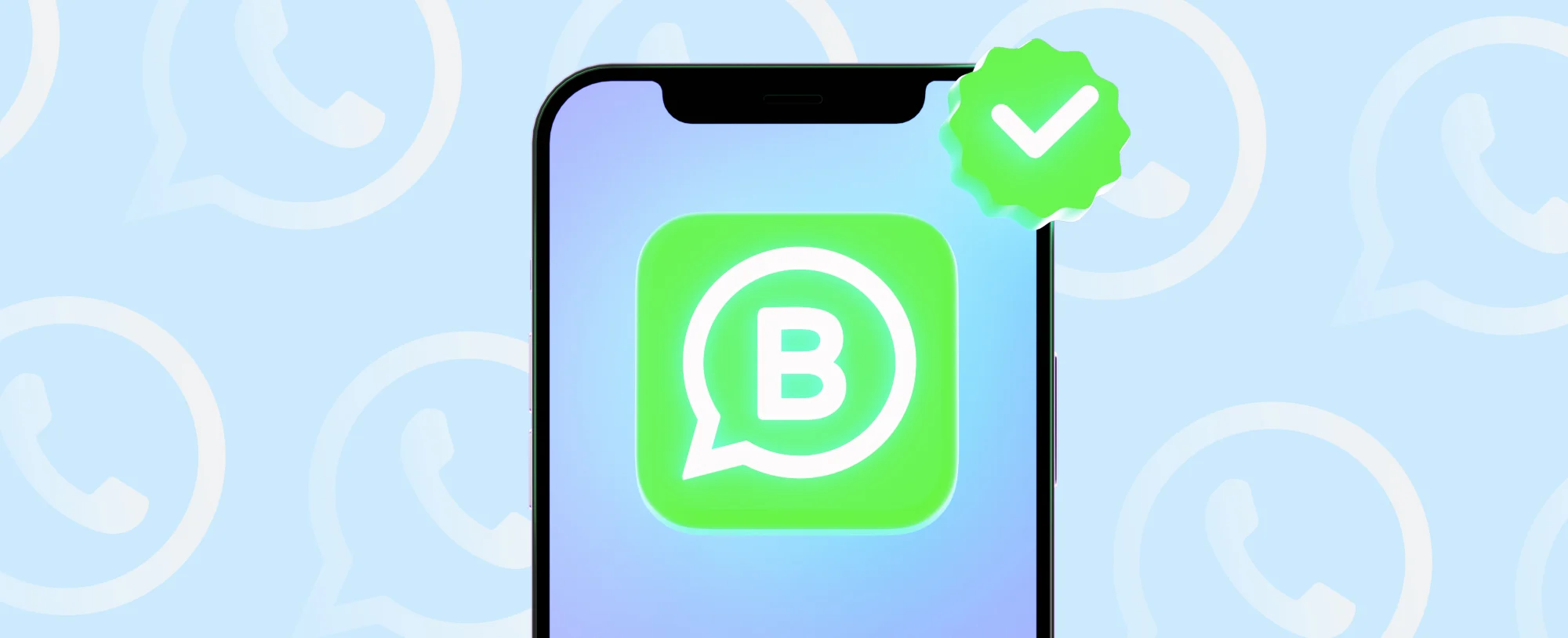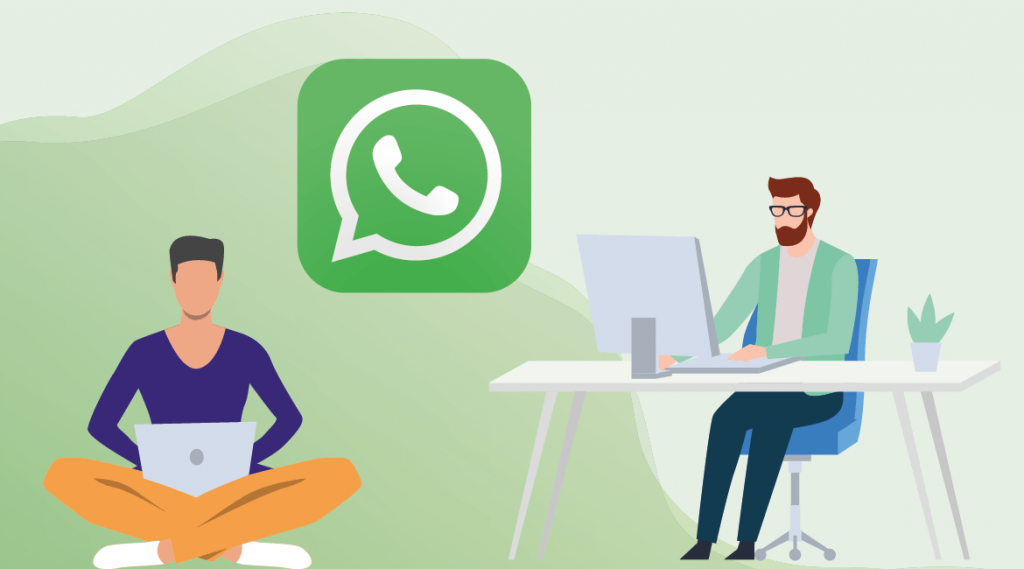
With over 2 billion active users, WhatsApp has become one of the most-used messaging platforms in the world. As businesses switch to messaging apps for interaction with their customers, the significance of the WhatsApp API rises for any business that aims to enhance its communication and ever-increasing customer engagement. This blog will discuss the WhatsApp API, its features and benefits, and how it helps build businesses with complete guidelines for the year 2025.

1.what is WhatsApp Business API ?
The WhatsApp API is a messaging tool for medium and large enterprises in WhatsApp message exchanges with customers. ChatGPT said:
On the contrary, the WhatsApp Business app is specifically meant for small businesses, while the WhatsApp API offers more powerful features, including automation and integration, particularly for businesses that require extensive communication with customers.
2. How WhatsApp API Works?
The WhatsApp API allows for business messaging by enabling businesses to send and receive messages to customers, thus replying without an app, but instead through backend integration.
WhatsApp API allows for business messaging to send and receive messages to customers replying without an app but through backend integration. Companies can integrate the API into their CRM systems, chatbots, and marketing automation tools to provide a seamless experience. Commonly,
the business API is integrated into the existing business systems through either a cloud-based provider or partner approved by WhatsApp, thus providing scalable solutions for different communication needs and customer service through marketing campaigns and transaction updates.
3.what is WhatsApp API Functions for Companies?
There are compelling features within the WhatsApp API that are meant to enhance communication in addition to the customer’s engagement. Some of the primary features include:
a) Two Way Communication
This feature is for businesses to send text messages to customers and instantly receive replies. Typical applications of this feature are during customer services, inquiries, or order tracking to customers.
b) Rich Media Messages
Using the WhatsApp API, the business can send multimedia content, for example image files, video, documents, and audio messages creating a more interactive communication channel.
c) Templates and Automation
Besides this, the automation of message templates is allowed by the WhatsApp Business API, in which pre-approved message templates are prepared to be sent out as notifications for things such as order confirmation, shipping updates, or appointment reminders, improving efficiency.
d) Integration to Customer Relationship Management Systems
So with the WhatsApp API, businesses can use Customer Relationship Management (CRM) systems but still allow them to have communication all centralized and most probably also enable better management of customer data.
e) End-to-End Encryption
End-to-end encryption is seen in all messages sent from the clients to the WhatsApp Business API, meaning all messages are secure within the communications between business with their customers.
f) Multiples User Access
Multiple team members may be provided access and thus can respond to messages during a customer service operation. This is very useful when dealing with high numbers of queries from customers
3. Benefits of WhatsApp API for Business Growth
a) Enriched Customer Engagement
In this age of digitization, customer engagement is the mantra for growth for any business. With WhatsApp API, businesses can directly reach customers in their habitat-the place of highest activity. Such real-time support would enable businesses to build stronger relationships with their customers by gaining their trust. Examples include instant messaging and rich media-making conversations much more personal and lively in approach.
b) Automation and Efficiency
The possibility of automating communication through bots and pre-configured message templates can be possible through the WhatsApp API. This reduces the dependency on human agents while ensuring that response times are quick and customers can get assistance almost immediately. The customer query covers automated replies, while more complex problems can be handled by agents, thereby drastically improving overall efficiency.
c) Personalized Marketing
This very API gives the powers to send messages personalized as per the figures fed by the businesses in WhatsApp Business API. Personalized promos, product recommendations, or even updates sent through the special segmentation of customer lists can definitely be reached out to. Personalized communication seems to reflect greater customer satisfaction and conversion possibilities.
d) Cost Effective
Cost-effective communication is the feature that offers WhatsApp to businesses, the lowest alternative to traditional SMS and email communication. Since WhatsApp is installed on a relatively large percentage of devices, businesses reach their targets pretty cheaply-when compared to other forms of communication. Whereas, this API being scalable manages large volumes without incurring infrastructure costs to the organization.
e) Increased Conversion Rates
The WhatsApp API enables companies to send messages to customers in a transactional manner. Order confirmation, payment reminders, and ‘out-for-delivery’ notifications can all be sent through the same channel. Instead of unanswered questions, these customers receive up-to-date information regarding their orders that help them further experience a customer journey, which potentially lowers cart abandonment and no-show rates, helping to convert sales.
f) Simple Integration into Other Tools
The WhatsApp API enables companies to send messages to customers in a transactional manner. Order confirmation, payment reminders, and ‘out-for-delivery’ notifications can all be sent through the same channel. Instead of unanswered questions, these customers receive up-to-date information regarding their orders that help them further experience a customer journey, which potentially lowers cart abandonment and no-show rates, helping to convert sales.
The WhatsApp API can be integrated with almost any business tool including CRMs, Helpdesk softwares, and marketing automation platforms. These integrations will help businesses by centralizing their communication activities thus improving workflow efficiency and also providing valuable insights into customer interactions.
4. Best practices for accessing WhatsApp API in 2025?
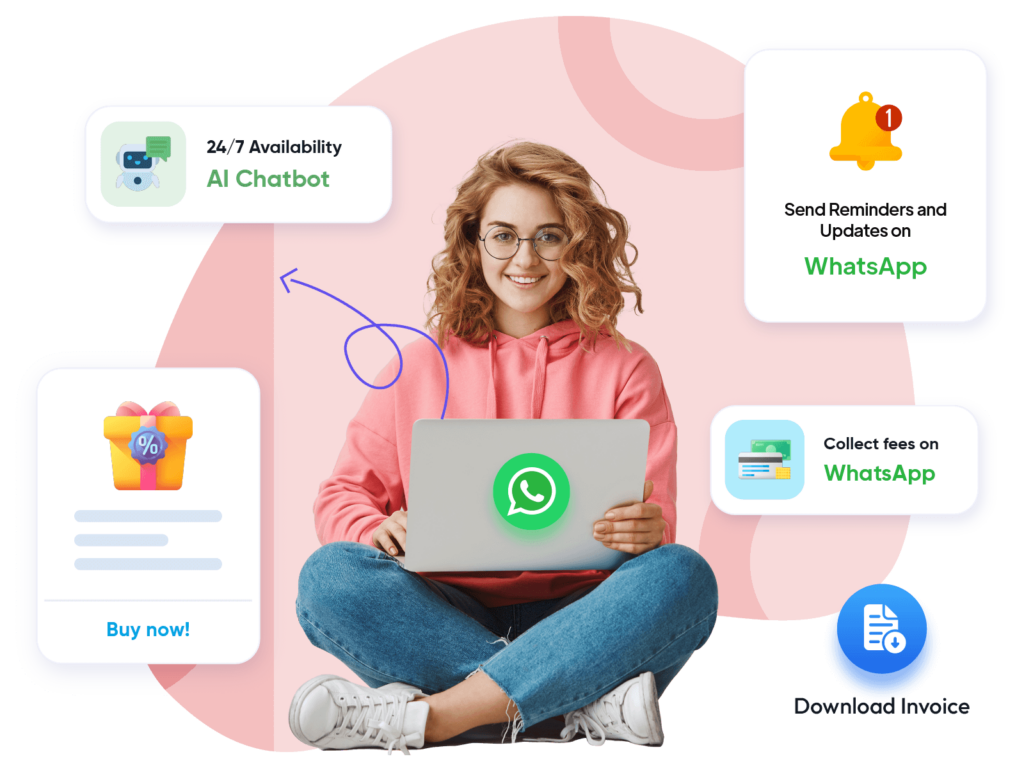
To succeed with WhatsApp API, businesses should use some best practices that incorporate customer expectations as well as the guidelines that are set by that organization itself. Here are some of these best practices:
a) Customer Consent is Necessary
To get customer consent to send messages via WhatsApp, acquire this consent before sending any messages. There are many ways to capture this consent, including gaining it at the point of onboarding or via an opt-in link on your website or app. If you send unsolicited messages, they will put off customers and violate WhatsApp’s policies.
b) Include Clear Opt-Outs
Subscribers must be able to unsubscribe at any time from messages. Ensure that your message contains an easy means to be separated from that communication, such as a simple opt-out word “STOP”.
c) Leverage Message Templates
Clear message templates would ensure that users remain in Whats App good graces. Templates must of course be relevant and endorsed by Whats App to avoid sanctions. Message templates should be short and clear with specific purposes, like status updates to customers about the order—the confirmation of bookings.
d) Prompt Responses
Customer service is one of the main uses to which Whats App API responds: prompt answers are a critical factor. Set up expectations for response time, and make all possible speed efforts to make customers happy.
e) Utilize Drawings and Interactive Contents
Use the heavy media like pictures, videos, and documents for communication rather than simple notes. Distribute product pictures, promotional videos, and documents like invoices or brochures to give value to your customers.
f) Data Privacy and Security
Since Whats App is end-to-end encrypted, you need to ensure that any data collected or processed is stored securely. Follow data protection regulations like the GDPR, thus avoiding legal issues and building customer trust.
5. what are Major Use Cases of WhatsApp API for Business Development.
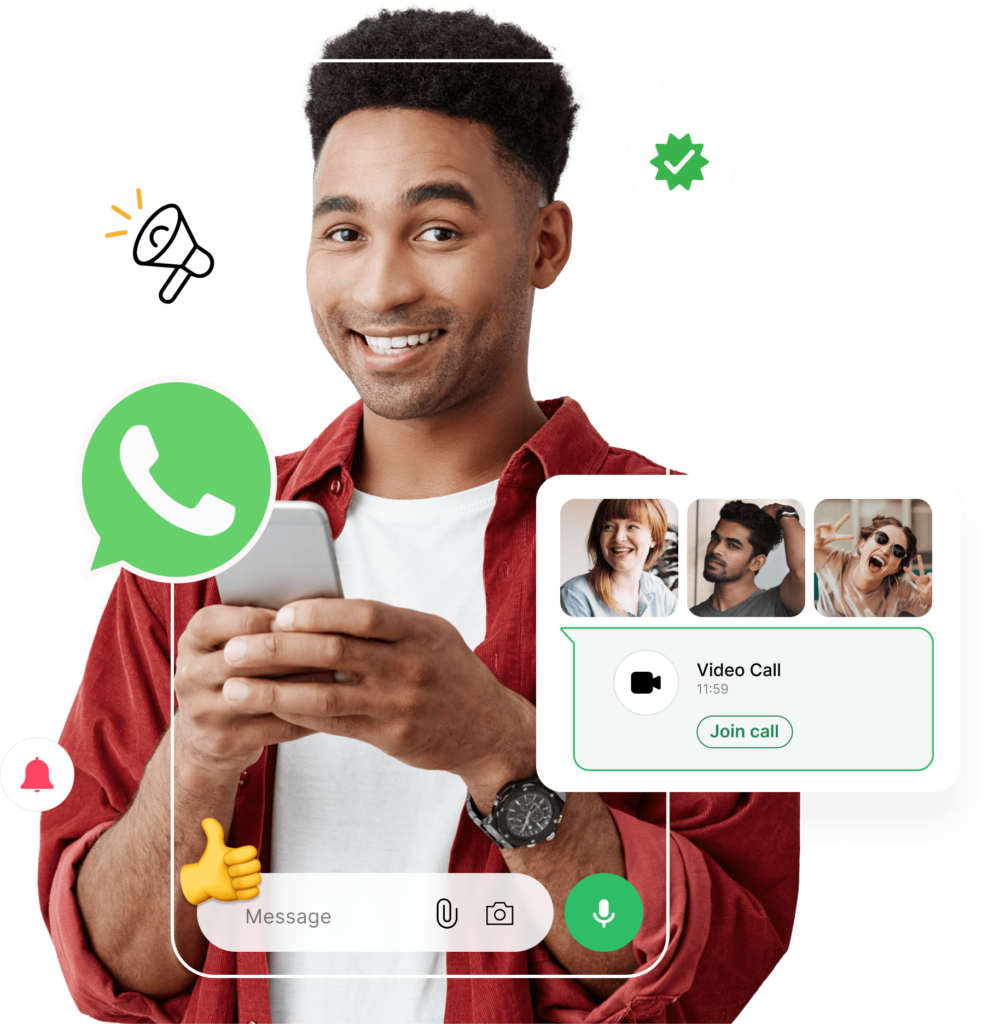
a) Customer Support
For customer inquiries, complaints, and troubleshooting matters, WhatsApp supports to provide real-time customer support and helps the businesses solve problems faster and make customers satisfied.
b) Marketing and Promotions
WhatsApp API would also allow businesses to send updates broadcast messages notifying customers on sales, discounts, and product launches. WhatsApp has amazing open rates so it would work perfectly in targeted marketing campaigns.
c) Order Management and Notifications
WhatsApp gives e-commerce companies the API for sending order confirmations, shipping updates, and delivery tracking directly into customer inboxes. The notifications keep the customers more informed so that their experience is improved, and anxiety about the purchase is diminished.
d) Appointment Booking and Reminder
For appointment confirmation, reminders, or cancellations, customers would be sent WhatsApp API messages so that they do not miss any appointments, especially for businesses in health, beauty, or educational industries.
e) Lead Generation
WhatsApp API and integration with Automated Chatbots may also act to generate leads at the same time by qualifying potential customers available. Companies could set these chatbots to collect lead details, schedule consultations, or redirect clients to certain sales teams.
6. Foresight on WhatsApp API in Business Development Future (2025 and Beyond)

Companies are highly advised to keep an eye on all trends and features being released for WhatsApp in order to stay ahead of the game. Here are some predictions about the future roles that the WhatsApp API would play in business development:.
a) Deepening the Integration of AI and Automation
In 2025, the WhatsApp API is forecasted to create an even stronger bond with artificial intelligence (AI) in providing much smarter bots and automated workflows for businesses to facilitate their customer queries.
b) E-Commerce Integration
Get ready to be married to the in-app purchases, product recommendations, and even customer service through WhatsApp chats with the coming tighter connections between the WhatsApp API and the e-commerce platforms.
c) Video and Voice Messages
As communication continues to evolve, businesses may very soon resort to the use of WhatsApp voice and video messages for even more personalized interactions with customers. This will definitely increase customer satisfaction.
d) Advanced Analytics and Reporting
Advancing together with an expected rise in the demand of businesses is probably going to be the WhatsApp API regarding more sophisticated analytics and reporting tools tracking message delivery and response times to better assess attributes concerning the customer’s sentiment.
WhatsApp offers evolution and innovation by releasing new features every so often, and keeping your strategy up to date will be crucial in putting this tool to good use. From being a small start-up to being a big giant, the WhatsApp Business API has opened a unique opportunity for businesses to connect with their consumers in a more relevant and productive way.
The WhatsApp Business API is a tool for medium and large businesses to manage customer communications at scale. The API allows businesses to integrate WhatsApp messaging into their existing systems (like CRM or helpdesk software) and manage multiple agents and automate communications on a larger scale, while the WhatsApp Business app is meant for small businesses that engage in direct customer interactions.
8. What are the major advantages of WhatsApp API in business development?

The advantages of WhatsApp API are numerous for any business development:
Better Customer Engagement: Businesses can engage their customers on WhatsApp, an active platform since they conduct most of their communication over there, thereby enhancing the link between communication and relationship.
Automated Communication: The API allows automation and diminishes reliance on manual responses, thus enhancing the efficiency.
Personalized Marketing: It allows businesses to send many personalized promotional updates and customer messages and increases the likelihood of customer retention and conversion.
Secure Messaging: Communication is end-to-end encrypted, making it secure and private for conversation between business and customer.
9. Highlight the different types of businesses that can gain from the use of the WhatsApp API?
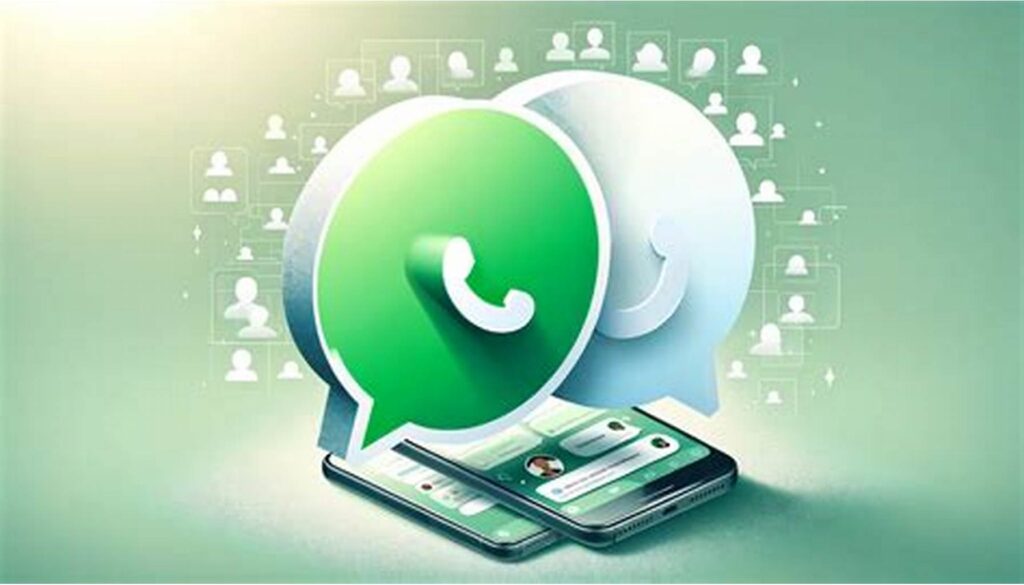
WhatsApp API benefits especially:
E-commerce: Sending order status updates, timely delivery notifications, and tracking customer service inquiries.
Service-Based Businesses: Healthcare, education, hospitality, beauty services, etc., help organize appointments, reminders, and customer support.
Retailer and Wholesaler: To engage customers with promotions, announce new stock, and solve customer queries.
Enterprises: To bring communication together from a series of different channels and allow centralized support that is efficient.
10. How does WhatsApp API work in the generation of leads?
WhatsApp API can generate leads through:

Chatbots can help with automated communication with potential customers, qualifying leads, and even scheduling appointments or demos.
Sending automated personalized messages to nurture the leads and get them to take action in the sales funnel.
Two-way communication also means businesses can respond quickly to queries and convert inquiries to potential sales.
11. Is WhatsApp Business API secure?
Yes, the WhatsApp Business API offers end-to-end encryption, which assures customers that their messages are protected and private from any interception. Moreover, companies must comply with data protection laws (such as the GDPR) to build trust in customers during the collection and storage of any personally identifiable data.
12. Can a business distribute advertisement messages via WhatsApp API?
WhatsApp does allow businesses to send promotional messages via WhatsApp API provided it follows template messaging guidelines, which means these messages have to be approved by WhatsApp before being sent to customers. And customers must have opted in to receive such messages. Forget about spamming; the business must provide meaningful content to the customer.
13. What are the steps for integrating the WhatsApp API with one’s established systems?
Integrating for the WhatsApp API with business systems requires the following:
Register for WhatsApp Business API with an authorized WhatsApp Business Solution Provider or directly with WhatsApp, where qualified.
Management of the API integration could either use a cloud-based platform or an on-premise solution.
Depending on the customer’s system architecture with regard to the integration of WhatsApp API, CRM, helpdesk, or marketing tools could be achieved using APIs or pre-built connector.
Harmonize your operations with WhatsApp guidelines and customer consent regarding message template approvals.
VebX CRM Panel- by Veblika could help you easily integrate the WhatsApp API into your system to carry out automated workflows and support lead generation and customer support.
The Effectiveness of WhatsApp API by the Businesses Measured:
Such metrics comprise, but are not limited to, valuable criteria such as:
Response time: Measure how soon message agents are responding to.
Customer satisfaction: Customer feedback on WhatsApp experience should be collected.
Message delivery and open rates: The number of messages delivered or opened by customers must be counted.
Conversion rates: Measure the leads or sales generated using WhatsApp conversations.
Conclusion
The WhatsApp API is transforming how businesses communicate at scale with their customers. Now, by the year 2025, an enterprise must employ its capabilities for customer care, marketing, order management, and lead generation to stay ahead of competitors. With the best practices, personalization, and automation, businesses can foster better customer relationships, enhancing conversion rates and growt
